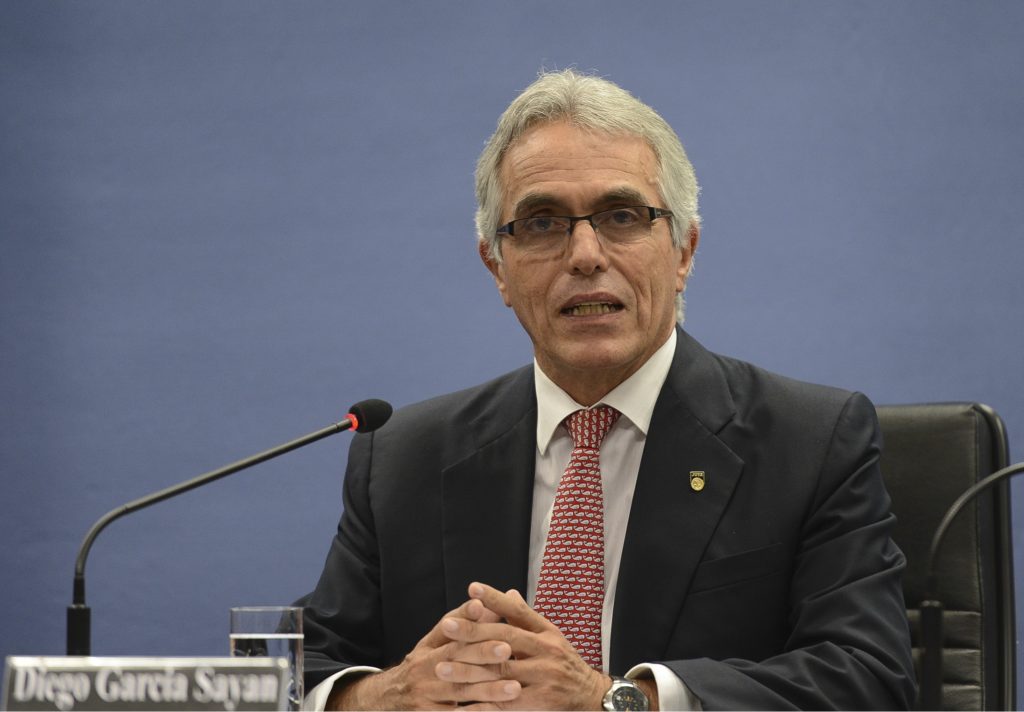RIO DE JANEIRO, BRAZIL – The Bolivian State must guarantee the access and independence of Justice through a national agreement, said the special rapporteur for the Independence of Judges and Lawyers of the United Nations on Tuesday, February 22, the Peruvian Diego García-Sayán, at the end of his visit to the country.
García-Sayán presented in a press conference in La Paz the preliminary observations of his visit, which began a week ago, summarized in nine points after the meetings he held with authorities, political leaders, human rights entities, and other social organizations.
INDEPENDENCE AND NATIONAL PACT
For the rapporteur, the independence of Justice is “a pending task” and a “challenge” that Bolivia must face with “firmness”.

García-Sayán referred to some events “over several years” in which the rapporteur has already identified pressure, intimidation, imprisonment, and political processes. He found that those “have not yet been eradicated” during his visit.
“The State must guarantee the judicial system’s independence, and all governmental and other institutions are called upon to respect and abide by this independence,” he said.
He also urged that a “great national agreement” be made effective to establish goals that involve the participation of political groupings, professional associations, representatives of the powers of the State, and social sectors.
JUDICIAL REFORM
García-Sayán stressed that Justice in Bolivia “is far from the people” and highlighted the citizen response to a recent scandal, in which a serial murderer went free thanks to “corrupt media”.
“I have noted, with concern, that there is a serious gap in women’s access to justice,” he said.
Referring to the situation in the country’s prisons, he said that overcrowding reaches “particularly dramatic proportions” with more than 19,000 prisoners in a system that has a capacity for 5,000, 349% over its capacity.
He noted that there are 1,000 judges for a population of more than 11 million, that only 44% of them are in a judicial career while the rest are transit judges and that it is necessary that “they become career judges”.
Regarding the work of the Prosecutor’s Office, he warned about “the limitations” to access to information by the victims of crimes and asked that “serious consideration” be given to legislation of access to public information.
Also, the rapporteur noted his “concern” about the “low legitimacy” of the process of election of senior judges of Justice submitted to popular vote, something that requires “some adjustments” in the previous selection in Parliament.
THE 2019 CRISIS
García-Sayán referred to the 2019 crisis that left at least 37 dead due to actions by state forces or groups in dispute, mainly the twenty or so killed in the so-called massacres of Sacaba in Cochabamba and Senkata in El Alto during the government of interim president Jeanine Áñez.
“I deeply regret that these victims have spent more than two years waiting for justice without getting it,” he said.
However, the preliminary report points out that “it is necessary to recognize that people are affected on both sides of the political spectrum and deserve recognition as victims”.
The crisis of that year followed allegations of fraud in the general elections that led to the resignation of then-president Evo Morales, although he claimed that it was, in fact, a “coup d’état“.
The rapporteur expressed confidence that his visit could “encourage a fair priority and attention” to these cases and that those affected “could find some justice”.
He also pointed out that his report “is not binding” and that, in reality, it seeks to make recommendations to “encourage dialogue” between Bolivians and their institutions after being invited by the Bolivian government.
The presentation of the final report on the rapporteur’s visit will be made in Geneva and is scheduled for next June.
With information from EFE

